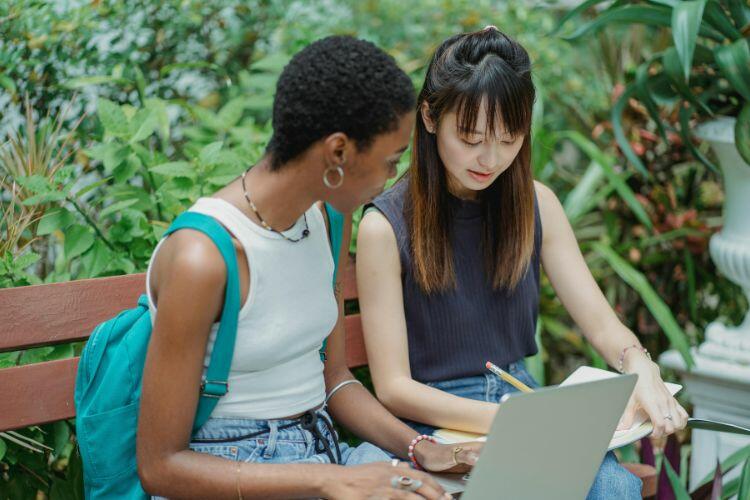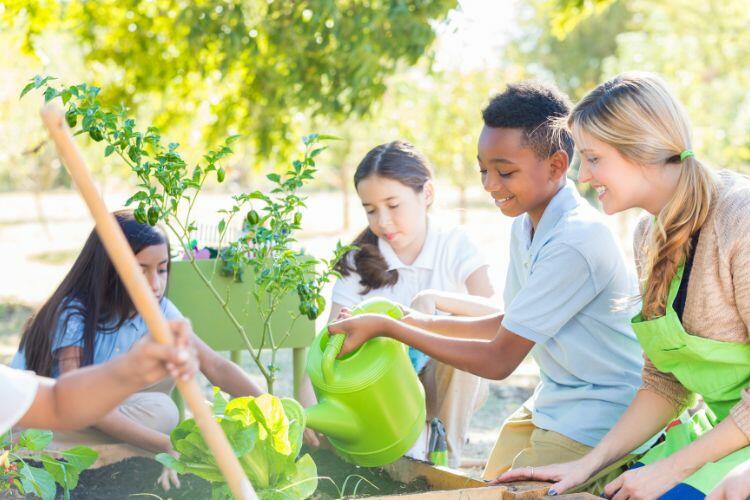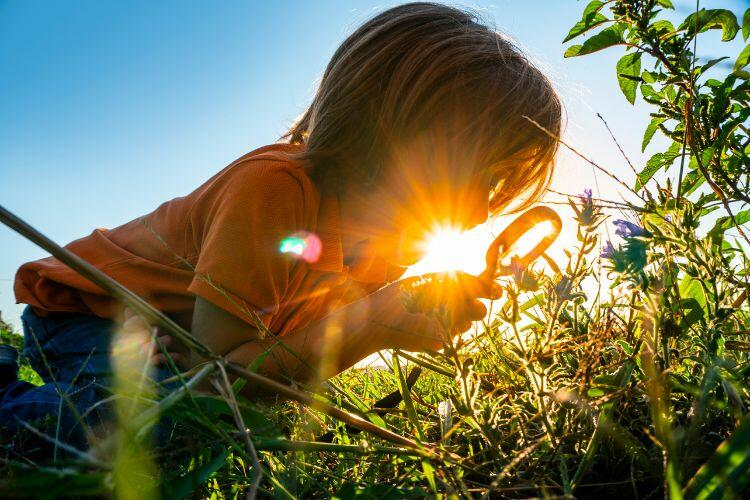
Section Branding
Header Content
22 Earth Month Resources For Lesson Planning In The Classroom And Learning At Home
Primary Content
Earth Day has been celebrated on April 22nd for over 50 years! It began in 1970 when 20 million people coordinated across the nation to raise awareness about environmental issues. Their efforts helped bring attention to pollution and climate concerns, sparking the modern environmental movement. Today, Earth Month is celebrated every April as a time to reflect on how we can protect our planet and take meaningful action. To help educators and families inspire the next generation of environmental stewards, GPB has curated a collection of engaging, standards-aligned resources for students of all ages.
Videos And Media Collections
1. Georgia Public Broadcasting’s Live Explorations
(Grades 3-5)
Take your students on rich and immersive learning experiences with GPB’s Emmy Award-winning Live Exploration series, featuring expert-led deep dives into Georgia’s ecosystems, wildlife, and conservation efforts.
(Grades 9-12)
This engaging video series introduces students to key environmental concepts, sustainability efforts, and conservation strategies through real-world applications and expert interviews.
(Grades 6-12)
Discover the history and significance of Earth Day with this educational collection of videos, articles, and lesson plans, highlighting ways individuals and communities can take action to protect the planet.
4. Weathered
(Grades 6-12)
Explore the science of extreme weather and climate change through this thought-provoking series about complex environmental issues in digestible lessons.
5. Take Care of the Earth | Hero Elementary
(Grades K-2)
A fun and educational PBS KIDS video that helps young learners understand their role in protecting the environment through superhero-themed adventures.

Lesson Plans
Ace your evaluations with free standards-aligned lesson plans designed to make teaching easier and more engaging. Each lesson features a variety of resources, including background readings, discussion questions, vocabulary, and other support materials. Many are also seamlessly integrated into Google Classroom for added convenience!
6. PBS KIDS Explore The Outdoors
(Grades PreK-5)
Inspire curiosity about nature with this collection of activities and lesson plans designed to get kids outside and engaged with their environment.
(Grades 6-12)
This free lesson plan encourages students to consider the balance between human development and nature, exploring solutions to pressing environmental challenges.
(Grades 3-12)
Enjoy a comprehensive set of resources that delve into climate science, human impact on the environment, and what can be done to mitigate climate change.
(Grades 6-12)
This lesson plan uses the story of oyster populations to illustrate broader environmental issues, such as habitat destruction, pollution, and conservation efforts.

Games And Interactives
10. Feed The Dingo: An Ecosystem Game
(Grades PreK-2)
This interactive game helps students understand the delicate balance of ecosystems by allowing them to explore food chains and predator-prey relationships.
(Grades PreK-2)
A collection of fun, educational games that introduce young learners to key scientific concepts, including earth science and sustainability.
12. Ready, Jet, Go! Mission Earth
(Grades PreK-2)
Join Jet and his friends as they explore Earth’s systems, helping students understand weather, climate, and the importance of taking care of our planet.
13. GPB Live Explorations: Water
(Grades 3-8)
An interactive exploration of Georgia’s water systems, teaching students about the importance of conservation and the science behind water cycles.
14. Physical Features of Georgia | Virtual Field Trip
(Grades 2-8)
Take a virtual journey through Georgia’s diverse landscapes, from the mountains to the coast, and explore how these features impact ecosystems.
15. PBS KIDS Play Learn Science App
(Grades PreK-2)
A safe, kid-friendly, hands-on app that encourages young learners to experiment with science concepts, including environmental stewardship and sustainability.
16. Martha Speaks: Waste Not, Want Not Digital Game
(Grades K-5)
This game helps kids learn about reducing waste and making sustainable choices in a fun and engaging way.
17. Nutrient Pollution Management Simulator
(Grades 6-8)
A simulation-based learning experience that allows students to see the effects of pollution on water ecosystems and explore solutions to environmental challenges.

Looking to the Future
(Grades PreK-12)
You can also take action beyond the classroom! Download this document, and encourage students to print and sign an environmental promise to care for our environment.
(Grades PreK-2)
Check out this site for free, educational games for children ages 4-8. You can filter by age, show, subject, and more!
(Grades PreK-2)
Parents can try creating these DIY Earth-friendly crafts with items you have around the house. This site has 50+ ideas, organized by household item, to turn milk cartons, cereal boxes, toilet paper rolls, and more into fun art projects and imaginary play props.
21. Celebrate Earth Day At Home
(Grades PreK-12)
Visit this PBS KIDS Blog for 15 ideas to celebrate Earth Day with your kids! Many of the suggested activities, like free visit to our national parks for the first day of National Park Week, work well for little ones and teens alike.
22. Follow Our Socials
(Grades PreK-12)
Want even more ideas? Follow us on Instagram, Facebook, and X!
Earth Day is more than just a day—it’s a movement, a mindset, and a reminder of our shared responsibility to protect our planet. As educators, parents, and mentors, we have the opportunity to inspire the next generation of environmental stewards. What kind of world do we want to leave behind 50 years from now? The small actions we take today—teaching students about conservation, encouraging sustainable choices, and fostering curiosity about the natural world—can have a lasting impact.






